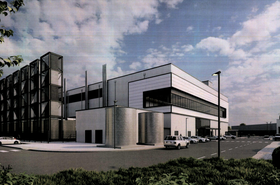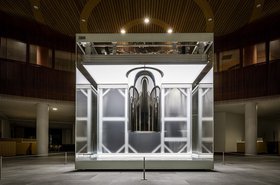Ireland's state electricity grid authority EirGrid has called a halt to plans for up to 30 potential data centers, as electricity curbs begin to bite. Government minister Eamon Ryan has said the decision is ''absolutely right."
EirGrid's statement comes after the Commission for the Regulation of Utilities (CRU) kicked off a de facto moratorium on data centers when it announced in November that there should be limits to data center building until 2028, as the country could not build renewable capacity fast enough to meet other needs, including a commitment to decarbonize the grid, so that 80 percent of the nation's electricity must come from renewable sources by 2030.
The news follows reports that Interxion has paused a $300 million expansion in Ireland, and Google has said electricity curbs make developments there "impossible."
Applications closed down
“EirGrid were considering applications for a grid connection offer from just under 30 data center projects at the time of the publication [of the CRU's new rules],” EirGrid said, according to an Irish Times report.
“EirGrid are now applying these criteria to all data center applications. In doing so, the majority of the applications referenced above have been, or are in the process of being, closed out in line with the CRU direction.”
The comments imply that the de facto moratorium, which has so far been understood to apply to the Dublin area, will have wider implications across the nation. In June 2021, Eirgrid had approved 1,800MW of future data centers, but had applications for 2,000MW. It now appears that all of that capacity has been canceled.
The Irish inward investment agency, IDA Ireland, has warned that canceling data center projects over the electricity supply will hold back the country's efforts to become a global business and technology hub.
In January, IDA CEO Martin Shanahan said new data centers “are unlikely to happen in Dublin and the East Coast, at this point.”
Google pleaded with the CRU that a moratorium would send the “wrong signal” about Ireland’s ambitions as a digital economy and render any further investments in its infrastructure in the country “impossible," in statements reported in April, which said a ban on data center development should be avoided “at all costs."
The CRU ruling followed six months of campaigning from environmentalists and political parties including the Social Democrats and People Before Profit. EirGrid warned that data centers already use more than 10 percent of the country's electricity supply, and this could grow to 30 percent by 2030. Not only would this make it impossible to decarbonize the grid, it would cause "rolling blackouts," said EirGrid.
The data center sector already consumes more power than the entire rural domestic sector, according to recent figures.
Interxion's pause was revealed to Ireland’s Business Post by Seamus Dunne, MD of Interxion’s Ireland operations. A leading European operator, Interxion was acquired by global giant Digital Realty two years ago, and has been engaging in expansion across Europe.
In Ireland, Interxion planned a $300 million expansion plan in Dublin, which included buying eight acres of land in Dublin. “We had already committed to buying the land [for data center expansion] before the moratorium came into being and so we have little choice but to play the long game with it,” said Dunne.
Environment minister agrees
Eamon Ryan, minister for the environment, climate, and communications commented to broadcaster RTÉ News that Ireland is currently in a ''very tight situation' regarding electricity supply, and Eirgrid is ''absolutely right'' not to take new applications from data centers.
''We haven't taken a new application for a new data center going back almost two years to July 2020,'' Ryan said ''Eirgrid has our full support in what they are doing".
Data centers still have a role in the future, but must operate within Ireland's climate and energy supply limits, he said. This means they must be able to bring their own generation and be flexible in how they use demand.
''We don't want to say no but there is no point saying yes when there isn't the power supply in the grid to manage data centers," he added.





